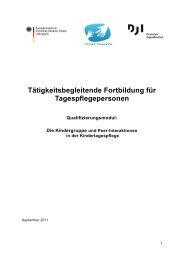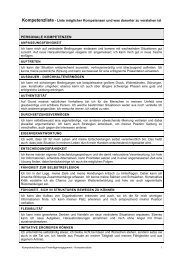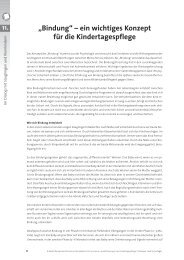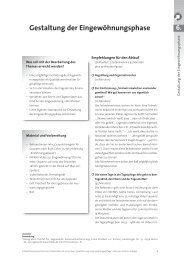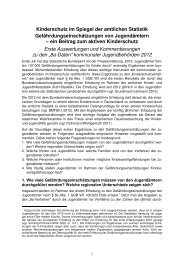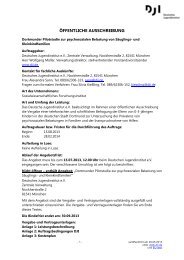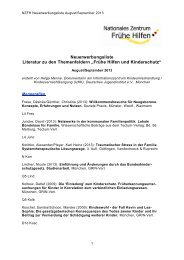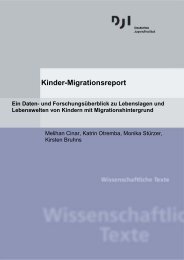download - Deutsches Jugendinstitut e.V.
download - Deutsches Jugendinstitut e.V.
download - Deutsches Jugendinstitut e.V.
Create successful ePaper yourself
Turn your PDF publications into a flip-book with our unique Google optimized e-Paper software.
Presentation United Kingdom / England<br />
David Moynihan, Greater London Enterprise (GLE)<br />
The London ESF Programme “Fast<br />
Forward Grants”<br />
The ESF support instrument “Small Grants/ Global<br />
Grants” has been implemented in a variety of regions<br />
since 2001. Non-governmental organisations (NGOs)<br />
which had not previously been able to profit from the<br />
ESF have been supported by small subsidies. The focal<br />
point was the support of small organisations and local<br />
initiatives with good access to disadvantaged parts of the<br />
population. The target is to lead disadvantaged persons into the employment market.<br />
Particular target groups include ethnic minorities, single parents, the over-55 age group and<br />
other groups in which a high employment rate exists. Projects for the acquisition of key<br />
qualifications receive particular support: this includes the encouragement of motivation,<br />
increase in self-esteem and the acquirement of social competences. Language and career<br />
skills are also improved and local networks and business start-ups supported.<br />
The implementation of “Small Grants/ Global Grants“ is based within national<br />
strategies, for example the "National Action Plan for Employment“, “National Action Plan<br />
for Social Inclusion“ and the “National Strategy for Neighbourhood Renewal“.<br />
On a national level (in England) the Department for Work and Pensions is responsible<br />
for the implementation of the ESF support instrument and has set up the “Programme<br />
Monitoring Committee (PMC)“ for the monitoring and evaluation of “Small<br />
Grants/Global Grants“.<br />
For the individual country of England, an independent programme exists which also<br />
incorporates the support instrument “Small Grants/Global Grants“. Implementation is<br />
carried out in all nine regions via intermediary bodies which are appointed by the relevant<br />
regional Government Offices. one or more (up to 10) intermediary bodies have been set up<br />
n the individual regions with an overall total of 37. Over half of these are voluntary<br />
organisations and foundations. Public institutions (public bodies or Learning and Skills<br />
Councils) also take on this function, as do private organisations such as business<br />
promotion organisations.<br />
These intermediary bodies are responsible for acquisition and consultancy services for<br />
project executing organisations, the application process, preparation for the selection of<br />
projects to be funded and the handling of finances. This also includes the creation of cofinancing;<br />
although the projects themselves are financed at a rate of 100 %, co-financing to<br />
the tune of 55 % must be generated at intermediary body level.<br />
In all regions, a minimum of 1 % of the ESF budget was spent on the implementation<br />
of "Global Grants/Small Grants“. In four regions, the expenditure rate was as high as<br />
between 2 to 3 %. Up to February 2007, 29.4 million ₤ (ca. 43.6 million €) was spent in the<br />
nine regions.<br />
81



